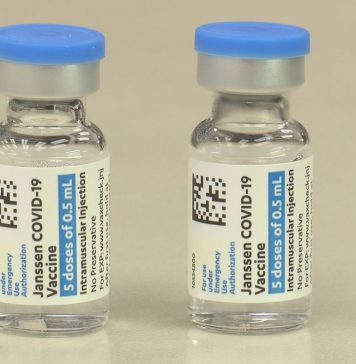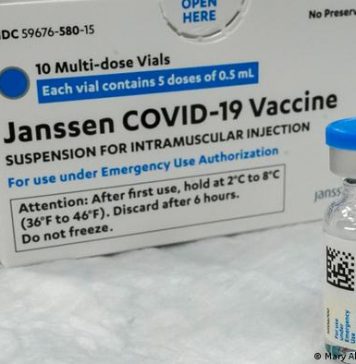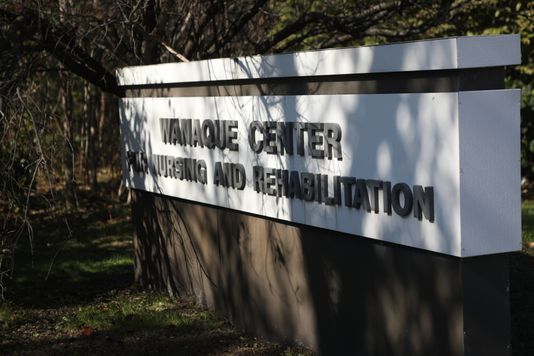Valeant projects 30 percent growth in 2016 profit, shares jump
Array BioPharma cancer drug succeeds in late-stage study
In Germany, birthrate peaks while mothers become older
Bristol’s drug pricing under fire as UK agency rejects Opdivo
LONDON Bristol-Myers Squibb's closely watched new drug Opdivo, one of the first of a new wave of cancer medicines that boost the immune system, has been rejected as too expensive for treating lung cancer by Britain's cost watchdog.
In draft guidance issued on Wednesday, the National Institute for Health and Care Excellence (NICE) said using Opdivo, or nivolumab, in non-small cell lung cancer after chemotherapy did not represent a cost-effective use of resources.
The U.S. drugmaker said the NICE decision was "deeply disappointing".
However, the head of Britain's leading cancer research center said companies needed to do more to bring down the cost of such treatments.
“Recently we have seen drug companies setting very high prices for promising immunotherapies, including nivolumab," said Paul Workman, chief executive of the Institute of Cancer Research.
"There is no question that this pioneering and innovative treatment improves and extends the life of patients with non-small cell lung cancer – a disease that has very limited treatment options – but at this price it is very clearly too expensive."
Immunotherapies offer long-lasting responses in some patients by releasing the brakes on the immune system, allowing the body's defenses to recognize and destroy cancer cells, and they are already starting to change clinical practise.
But their real promise lies in combination treatments, which will push up costs further.
"While innovative drugs should command relatively higher prices, the overall cost of treatment must be affordable," Workman said.
(Reporting by Ben Hirschlerl editing by Jane Merriman and Jason Neely)
Instead of jade, Myanmar’s gem scavengers find heroin and destitution
Parents may not notice when children are overweight
(Reuters Health) - Many parents don’t realize when their children are overweight and so they fail to help the youngsters shed excess pounds, an Australian study suggests.
When researchers asked parents to report their child’s height and weight, the results suggested that about 16% of the kids were overweight and 6% were obese.
But when parents were asked if their child’s weight was healthy or unhealthy, only about 8% said they had overweight kids and only 0.2% reported an obese child.
And parents who didn’t recognize a weight problem in their children were less likely to take steps aimed at solving the problem, said study co-author Dr. Christina Pollard, of the Department of Health in Western Australia and Curtin University School of Public Health in Perth.
“The inaction based on misguided perception is of major concern,” Pollard said by email. “Taking action to improve diet and physical activity during childhood can help children avoid a lifetime of being overweight or obese.”
Pollard and colleagues reviewed data collected from 4,437 parents from 2009 to 2012 as part of the Western Australia Health and Wellbeing Surveillance System. Children ranged in age from five to 15.
Parents were asked: “Is your child underweight, normal weight, overweight or very overweight?” as well as “What are your intentions regarding your child’s weight?”
The majority of parents thought their child's weight was normal, regardless of whether or not this was true based on body mass index.
Every parent who thought their child was obese said they planned to help them achieve a healthy weight, as did about 61% of parents who said their child was overweight.
But when researchers looked at all the parents whose reports indicated that their children need to gain weight or lose weight – whether or not the parents realized it - the picture was worse.
Overall, just 23% of parents of obese children planned to help them lose weight, while more than half of them intended to do nothing.
At the other extreme, 70% of parents of underweight kids had no plans to intervene, the researchers reported online November 11 in the Australian and New Zealand Journal of Public Health.
One shortcoming of the study its reliance on height and weight reported by parents, rather than measurements taken by clinicians or researchers, the authors concede.
It’s also possible that some parents didn’t truthfully report their perceptions about their child’s weight in the survey, noted Davene Wright, a researcher at Seattle Children’s Research Institute and the University of Washington.
“Someone who recognizes that their child is overweight may not be willing to say so, even in an anonymous survey,” Wright, who wasn’t involved in the study, said by email.
“Part of the problem may be that parents are worried about being labeled `bad parents.’ Additionally, parents of overweight children may hope that their child will `grow out of it’ or that their height will catch up to their weight,” Wright added.
SOURCE: bit.ly/1P5hd40
Austral N Zealand J Publ Health 2015.
Canned fruit, vegetables linked to better diet
(Reuters Health) - Children and adults who eat canned fruits and vegetables might have a healthier diet than people who don’t, though they may also consume more calories and sugar, a recent U.S. study suggests.
Researchers analyzed data collected from 2001 to 2010 from almost 42,000 American children and adults, scoring the overall quality of their diets based their consumption of these foods as well as whole grains, dairy, protein, seafood and limited amounts of salt, sugars and empty calories.
Adults who consumed canned fruits and vegetables had an average diet quality score of 49 on a scale of 0 to 100, compared with 47.4 for their peers who didn’t eat these foods. For children, eating these canned goods was linked to an average diet score of 45.8, compared with 43.3 without these foods.
About 11% of these individuals ate canned vegetables and fruits on any given day. Overall, these people tended to consume higher amounts of certain nutrients as well as more calories, sugar and fat, according to the study online November 23 in the Journal of the Academy of Nutrition and Dietetics.
“By consuming fruits and vegetables, one may consume fewer foods that have lower nutritional value,” said study co-author Marjorie Freedman of San Jose State University in California.
“Thus, it makes sense that those who consume canned fruits and vegetables – most likely in conjunction with other types of fruits and vegetables – would have higher intake of certain nutrients and higher quality diets,” Freedman added by email.
The study was funded by the Canned Food Alliance, a consortium of steelmakers, can manufacturers, food processors and others.
While the study did find a higher quality diet linked to canned fruits and vegetables, it also set out to assess whether eating these things might be linked to a healthier weight or blood pressure. But weight, waist circumference and blood pressure were similar whether or not people consumed canned fruits and vegetables.
Children and adults who ate canned vegetables and fruits had similar levels of salt and added sugars in their diets, the study found.
Kids whose diets included these canned items also consumed more protein, vitamin A, calcium, and magnesium.
The study wasn’t designed to see whether canned fruits and veggies might be healthier than fresh or frozen alternatives.
The researchers admit that they only asked about cans, not jars, boxes, bags or other containers, and so may have underestimated the amount of processed fruits and vegetables consumed in the study.
The survey also relied on people to accurately report on what they consumed in the previous 24 hours, which might not be a complete picture of their eating habits on a typical day.
It’s also important to bear in mind that from a nutritional perspective, not all canned goods are created equal, noted Kevin Comerford, a researcher affiliated with the University of California, Davis, who wasn’t involved in the study.
“While there may be some overlap, processed foods are not synonymous with canned foods,” Comerford said by email. “Canned fruits and vegetables are better than no fruits or vegetables. Many canned fruits and vegetables can even be considered comparable to fresh options.”
It’s also possible that people who ate canned fruits and vegetables also ate more servings of fresh and frozen produce, noted Lauren Ptomey, a researcher at the University of Kansas Medical Center in Kansas City who wasn’t involved in the study.
When consumers opt for canned alternatives, Ptomey added by email, they should look for products with little or no added salt or sugars, and drain and rinse them before consumption.
“What this study is saying is that by consuming canned fruits and vegetables you may increase the total amount of fruits and vegetables in your diet,” Ptomey said. “It is in no way implying that canned is better for you than fresh or frozen.”
SOURCE: bit.ly/1RCMWfl
J Acad Nutr Diet 2015.
Drug addiction begins with painkiller for women, Study
Drug industry bemoans Britain’s lack of science skills
U.S. Democrats discussing fix to healthcare ‘Cadillac tax’
WASHINGTONU.S. Democratic lawmakers are discussing proposing changes to the "Cadillac tax," a levy on high-cost employer-based healthcare plans passed as part of President Barack Obama's 2010 Affordable Care Act, the Senate's No. 2 Democrat said on Tuesday.
"I'm not proposing eliminating it at this point, I’m open to suggestions for changing it," Illinois Senator Dick Durbin told reporters.
"I don't know if it'll be done this year or next year," Durbin added. "But we're trying to figure out a way to change it or remove it and the impact it would have."
The tax got its nickname because it will apply to premium or "Cadillac" healthcare plans starting in 2018. It would be levied on employer-based coverage that exceeds the thresholds of $10,200 a year for individuals and $27,500 for families.
It was designed to rein in healthcare costs under Obama's healthcare law. Employers could avoid it by replacing expensive plans with cheaper ones.
Congressional Republicans have long sought to repeal the entire Affordable Care Act, also known as Obamacare. Democrats have generally defended the act. But the looming Cadillac tax has grown increasingly unpopular, in part because labor unions say it could encourage employers to cut back on their health insurance plans for workers.
Earlier this autumn, the Democratic front-runner for president, Hillary Clinton, broke with the Obama administration to call for a repeal of the tax. She said the estimated $87 billion in lost revenue from repeal would be offset by her healthcare reform plans.
The leading Senate Democrat, Harry Reid of Nevada, has also said he supports a fix to the Cadillac tax.
The White House on Monday defended the tax, saying it gives employers with high-cost plans an incentive to make the plans more efficient.
But speaking at a news briefing, spokesman Josh Earnest did not rule out changes to the Cadillac tax.
"This law does not take effect until 2018. So we’ll be able to evaluate exactly how it would go into effect. And if in that intervening time there are ideas that are put forward that will strengthen the law, then we’re open to a conversation about that," Earnest said.
Durbin told reporters on Tuesday that "nobody has a clue" among congressional Democrats how the $87 billion in lost revenue from the tax could be replaced.
(Reporting by Susan Cornwell; Additional reporting by Jeff Mason; Editing by Peter Cooney)














